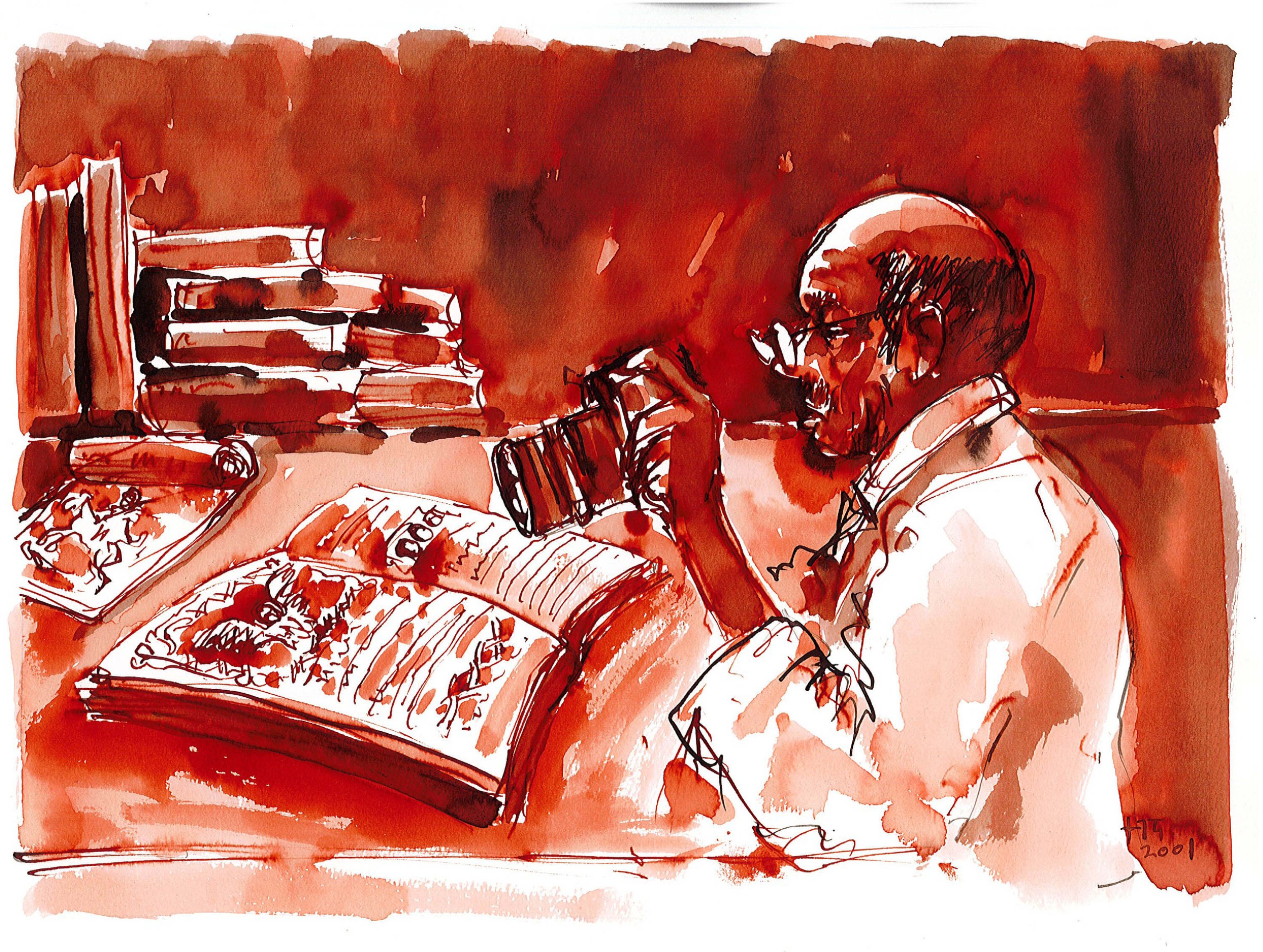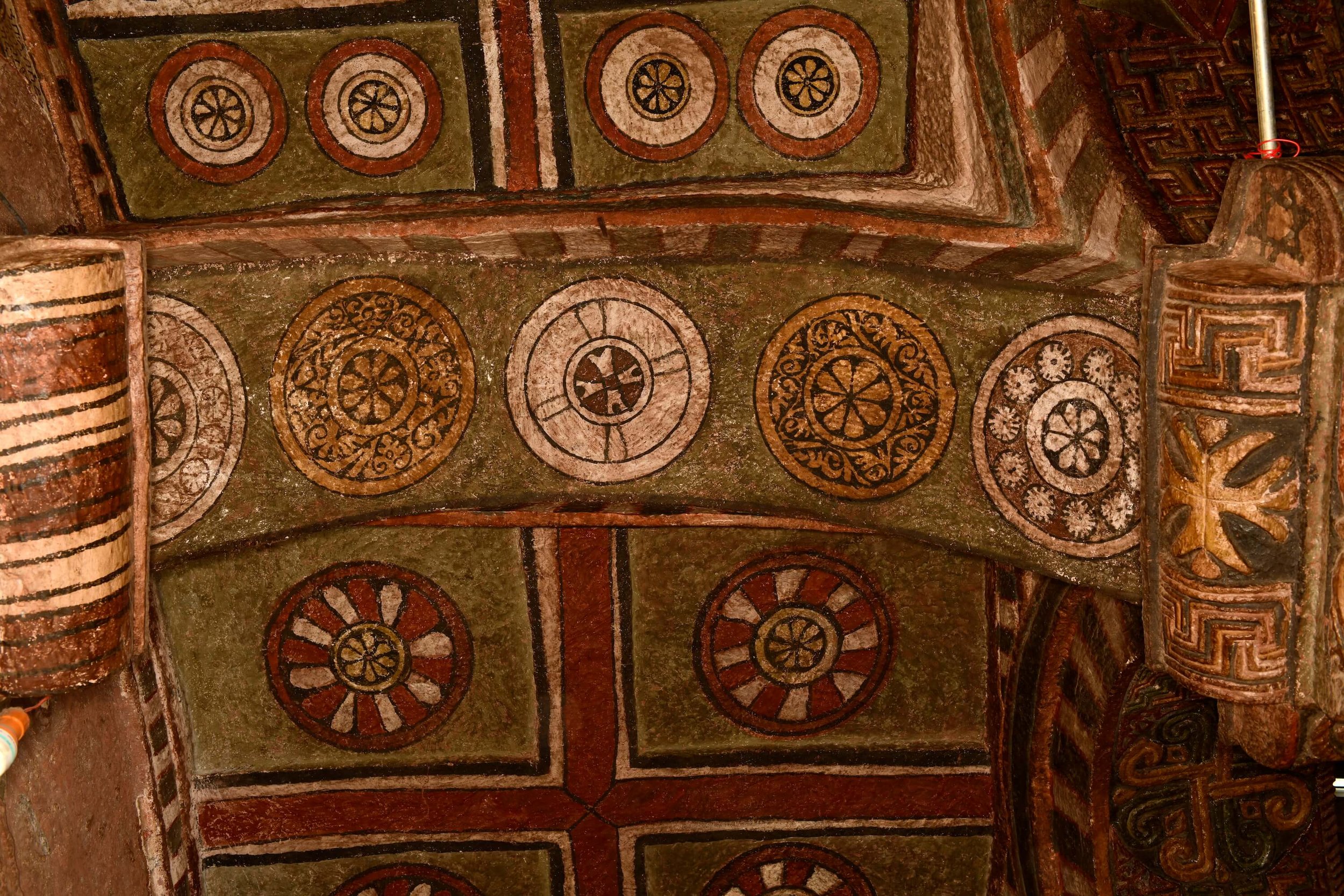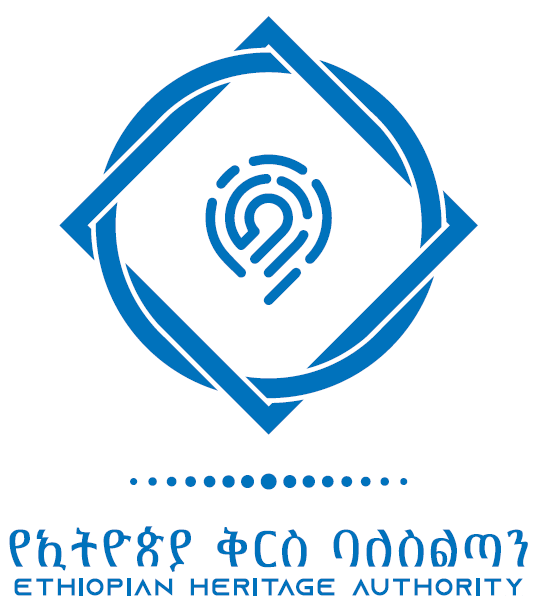
The Lalibela Project
In March 2019, a Franco-Ethiopian agreement rose the conservation and the valorization of the Churches of Lalibela, among the heritage cooperation projects between the two states. Funded by the French Foreign Office (MEAE), the French Development Agency (AFD) and the National Center for Scientific research (CNRS), the Sustainable Lalibela Project is led by the CNRS and executed by the French Center for Ethiopian Studies (CFEE) located in Addis Ababa. The project is part of the Lalibela Program which includes a digital exhibition by Archéovision Laboratory (CNRS), a global restoration strategy, and an important program of sustainable conservation of the site through the shelterization of all the churches.
SUSTAINABLE LALIBELA
-
Emergency restoration and conservation on site
Training in heritage restoration and management
Historical and touristic valorization of the site
Establishment of a digital center.
GLOBAL CONSERVATION
-
Diagnostic and analysis of the rocks pathologies in order to raise protection and conservation solutions.
Analysis of the stability and resistance of the current shelters. Study of conditions for an alternative protection structure and their extrapolation on the uncovered churches (implantation plan, height, structure type).
THE DIGITAL EXHIBITION
-
Innovative scenography combining technology and traditional means, along an interactive, contemplative and artistic itinerary.
Immersion in the site’s history, its environment, its liturgical and daily use.
Travelling between Lalibela, Addis Ababa, France and abroad.

5 Components
EXPLORE INTERACTIVE PRESENTATION (planned program 2022)
Details
Since 2021, Sustainable Lalibela's teams have had to deal with major constraints to implement the project. Conflicts in northern Ethiopia have regularly hampered access to the site and work on site. We have adapted to this situation by focusing on supporting local communities in need, and by relying on an exceptional local team.
-
March 2021
Sustainable Lalibela project launchAugust-December 2021
Lalibela in the war zone. The community suffered from rationing, no telecommunication, no water or electricity. Many young men fled the city. The onsite activities of the project were suspended and the training was delivered in Addis Ababa. -
Launch of the emergency works
Lightning comany was selected through a tender.
-
Training session for the Masters in Heritage Management of Woldiya University, Lalibela branch, in Addis Ababa (Nov. 2021)
Launch of school projects in the French school network.
-
Excavation mission and school field training for six students in Archaeology (March-April 2021)
Training session for Archaeology students in Addis Ababa (Nov. 2021)
Community archaeology: the excavation site was entitled Qeyit Terara, based on the interviews with workmen and community stakeholders.
-
The city of Lalibela was freed in December 2021. Nevertheless, the community remains under-pressure by the last 5 months. The project’s activities will resume gradually.
-
Resuming the emergency work (March 2022)
Beginning of the training of 20 craftsmen.
Conception of a trilingual glossary (French, English and Amharic) on restoration techniques by students in Heritage conservation. (March 2022)
Feasibility study by the lightning company.
-
The restoration on the paintings could only start once the lightning and electricity works are finalized.
Training on Manuscripts and artefects conservation and valorization (May 2022)
-
Conception of a trilingual glossary (French, English and Amharic) on heritage management by students in Heritage management. (March 2022)
Training session in Lalibela for the students in Heritage management leading to the conception of Qeyit Terara’s panels and of an interactive visit of the site (June 2022).
-
Archaeological mission and school field for 6 students (April-May 2022)
Conception of a trilingual glossary (French, English and Amharic) on Archaeology by students in Archaeology. (March 2022)
Community archaeology: conception of Qeyit Terara’s panels and of an interactive visit of the site by the Heritage Management students based on a dialogue with the local community.
Implementation of a Sustainable Lalibela Club for secondary schools and other young in Lalibela.
-
Purchase of the IT equipment for the Digital center.
Establishment of a data base specific to Lalibela’s context by an IT specialist.
Training of the clergy to digitization work.
-
80 students trained in conservation and heritage management 20 craftsmen trained.
-
workmen for the archaeological mission, carpenter, guards, facilitators...
-
international and French actors
-
Two distinct phases: January to July, the security situation in Lalibela was stable, allowing the SL team to make significant progress in project implementation. From August to November there was instability in the region. By the end of December, the town was relatively quiet again and under military administration. However, during this period of instability, the SL activities never stopped: the 31 craftsmen on site continued to work on the emergency interventions and the beautification of the site. Progress was made in all five of the redesigned components.
-
Completion of some of the remaining interventions, as well as additional related tasks such as landscaping, road construction, stairs installation, and construction of a side retaining wall, and podium, etc.
-
Initial consultations, planning, and approval processes with relevant stakeholders regarding the overhaul of the electrical and lighting systems in the churches.
-
Theoretical and/or practical trainings of members of the church administration, EHA officers and students on:
1. The preventive and curative process of artifacts.
2. The preventive conservation of manuscripts
3. The Digitization of manuscripts and Heritage Database
4. Intangible Heritage
Purchase and shipment of materials, and digital equipment for the trainings
-
Continuing work on the Addishadi trench.
Carrying out archaeological work with one of the students trained as part of the Sustainable Lalibela Project.
-
The Lalibela 3D exhibition "Carving Faith.
Construction of the "tukul" museum (made of local stone and wood) and relocation of the exhibition to this building.
Work with a local blacksmith to produce metal chandeliers for the interior lighting of the church.

The Team
-
Project Manager
Born in Lalibela. Graduated in Ethiopian Studies and Heritage Management. 12 years experience at Lalibela’s excavation mission, 15 years experience in heritage development projects in Lalibela.
-
Scientific Coordinator
Research director at the CNRS. Historian, specialized in medieval Ethiopia. Co- director (2010-2018) and then director (since 2019) of the historical and archaeological mission in Lalibela.
-
Scientific coordinator
Social Geographer, former director of the CFEE (2018-2022). Phd Thesis on “Lalibela, an Ethiopian city in globalization”. Maître de conférence at Paris-Nanterre University.
-
Management Assistant
Graduated in accounting and management. Administrative and financial management assistant for the Sustainable Lalibela Project.
-
Administrative and finance coordinator
Budget administrator and accountant of the CFEE since 2013. In charge of the budget’s administration, of the financial reports’ establishment, the human resources and the current affairs’ management in the project’s achievement.
-
Head of the emergency intervention program
Stone-cutter, Engineer assistant at the CNRS. Sixteen years experience as head of the anastyloses works at Karnak Temples, Egypt. Associated member of the mission “Lalibela, Archaeology of a Rock-hewn site” for a decade.
-
Head of the Franco- Ethiopian archaeological excavation
Geo-archaeologist. Associated member of TRACES laboratory (Toulouse) and CFEE (CNRS). In charge of the archaeological excavation in Lalibela since 2008.
-
Selam Tiruneh, graduated in Management and Business Administration. Assistant for the management and finance of the Sustainable Lalibela project (temporary replacement).
-
Correspondent of Lalibela’s Church for the Franco-Ethiopian cooperation program
Born in Lalibela. In charge of the international relations of Lalibela’s Church administration.
-
Sigrid Mirabaud, PhD (2007), is a conservation scientist at the French Ministry of Culture. Besides studying the paintings of Lalibela, she supervises the training of Ethiopian professionals in conservation for liturgical and archaeological objects.

Host institution of the project
FRENCH CENTER FOR ETHIOPIAN STUDIES (CFEE)
The French Centre for Ethiopian Studies (CFEE), UAR3137, is a joint unit of the French Institute for Research Abroad (IFRE) of the French Ministry for Europe and Foreign Affairs (MEAE) and the National Centre for Scientific Research (CNRS / INSHS). Based in Addis Ababa, it is the heir to nearly a century of Franco-Ethiopian scientific cooperation.
The activities of the CFEE concern the fields of earth sciences, palaeontology, archaeology, humanities and social sciences, and environmental sciences. It also provides scientific support in the field of heritage (Sustainable Lalibela, National Palace, National Museum of Ethiopia).
Constance Perrin-joly, director
jean-nicolas BACH, former dIRECTOR
MARIE BRIDONNEAU, Former director

Partners
French National Center for Scientific Research (CNRS)
The CNRS has been involved through its researchers, engineers and technicians in the historical and archaeological research works on the site of Lalibela for over 10 years. It is with great enthusiasm that the CNRS is supporting the Sustainable Lalibela project, which not only continues the work undertaken by researchers, engineers and technicians of the CNRS joint research units in France and the French Centre for Ethiopian Studies, a CNRS unit in Addis Ababa, but also aims to expand scientific collaboration with a wide range of French and Ethiopian partners through an integrative approach.
The various aspects of the project, which combine fundamental research, participatory research and training in and through research with the aim of restoring and enhancing the site, meet the priorities of the CNRS's scientific and international policy. The commitment to a research agenda co-constructed with Ethiopian, scientific and cultural partners, which integrates theoretical and practical training, and which involves the local populations, is particularly valuable because it will ensure the development of specific skills and expertise, supported by research practices, which can effectively meet the needs of the public and the States.
SYLVIE DEMURGER
rESEARCH dIRECTOR
agence française de développement (AFD)
The AFD supports financially and technically heritage valorization and preservation’s projects in Ethiopia. On this basis, the agency has allocated 3,3M€ to the CNRS in November 2020 for carrying out the ambitious and integrated Sustainable Lalibela Project. The project has been designed with federal, local and religious authorities in charge of this living heritage.
The AFD was particularly interested in several aspects of the project: the continuous dialog between the Ethiopian and French actors in the definition of the actions, the objectives and the process; the development of sustainable capacities for numerous actors and institutions: local craftsmen, future archaeologists, historians, heritage manager who will use their knowledge and skills to intervene on other Ethiopian sites, local guides for the valorization of the site; improvement of the site’s understanding and its open access through the establishment of a digital database center; community and various public’s inclusion (such as schoolchildren) in this project.
The AFD has been intervening in Ethiopia since 1996 in order to support the Ethiopian government, its public companies and the civil society in various sectors (energy, water, urban development, agriculture). Those commitments represent about 600M€.
lOUIS-Antoine SOUCHET, Country DIrector, Ethiopia
vALERIE TEHIO, former country director
EMBASSY of France in Ethiopia and to the African Union
Through its support in the preservation and valorization of the Churches of Lalibela, France remains faithful to its long-lasting friendship with Ethiopia. Fruit of a common will from the French Republic President Emmanuel Macron and the Prime Minister of the Federal Democratic Republic of Ethiopia, Dr Abiy Ahmed, this project echoes the long cooperation tradition that unites French scientists and their Ethiopian colleagues for several decades.
It is this story that we carry on today through this ambitious restoration program of the Churches of Lalibela, scientific research and the training of the Ethiopian actors who are their safe keepers. The double ambition of the project draws its distinction: a scientific approach and a close partnership with the population of Lalibela and their representatives. Through this commitment, France remains faithful to its values: preserve what we trust in; make sure that future generations will be able to grow up and raise in the shadows of those monuments and of the memory they pass through time. Because heritage is a powerful contributor to political cohesion, binding generations, territories and people. This conviction gathers France and Ethiopia: indeed, our two nations comprehend their future with a deep awareness of the deep antiquity of their civilization.
I want to salute the great work led by the CNRS teams, of the French Center for Ethiopian Studies, and its Ethiopian partners to design and execute this ambitious project, with the support of the AFD and the French Embassy in Ethiopia.
Alexis Lamek, Ambassador
RÉMI MARÉCHAUX, former ambassador
CHURCH OF LALIBELA
The Church of Lalibela’s administration is glad and thankful to welcome the Franco-Ethiopian project, Sustainable Lalibela, led by a transnational and multidisciplinary team which aims to restore, preserve and enhance the World Heritage of Saint Lalibela rock-hewn Churches. The program highlights the multi-facet dimension of the Sacred Churches and the town of Lalibela: the research carried on will enable to bring profound solutions to the fragility of this heritage and to train local actors to sustainable heritage management.
Aba HIRIAQOS, hEAD OF sT, lALIBELA mONASTERY
mEMHIR kOMOS aBA tSIGE sILASE mEZGEBU, former Head
ethiopian heritage agency (EHA)
The Ethiopian Heritage Authority is the Ethiopian federal authority in charge of the conservation, promotion and research of the country's cultural heritage. It is also responsible to UNESCO for the proper management of World Heritage sites. As such, it is a key partner in the Sustainable Lalibela project.
ABEBAW aYALEW, Director


































